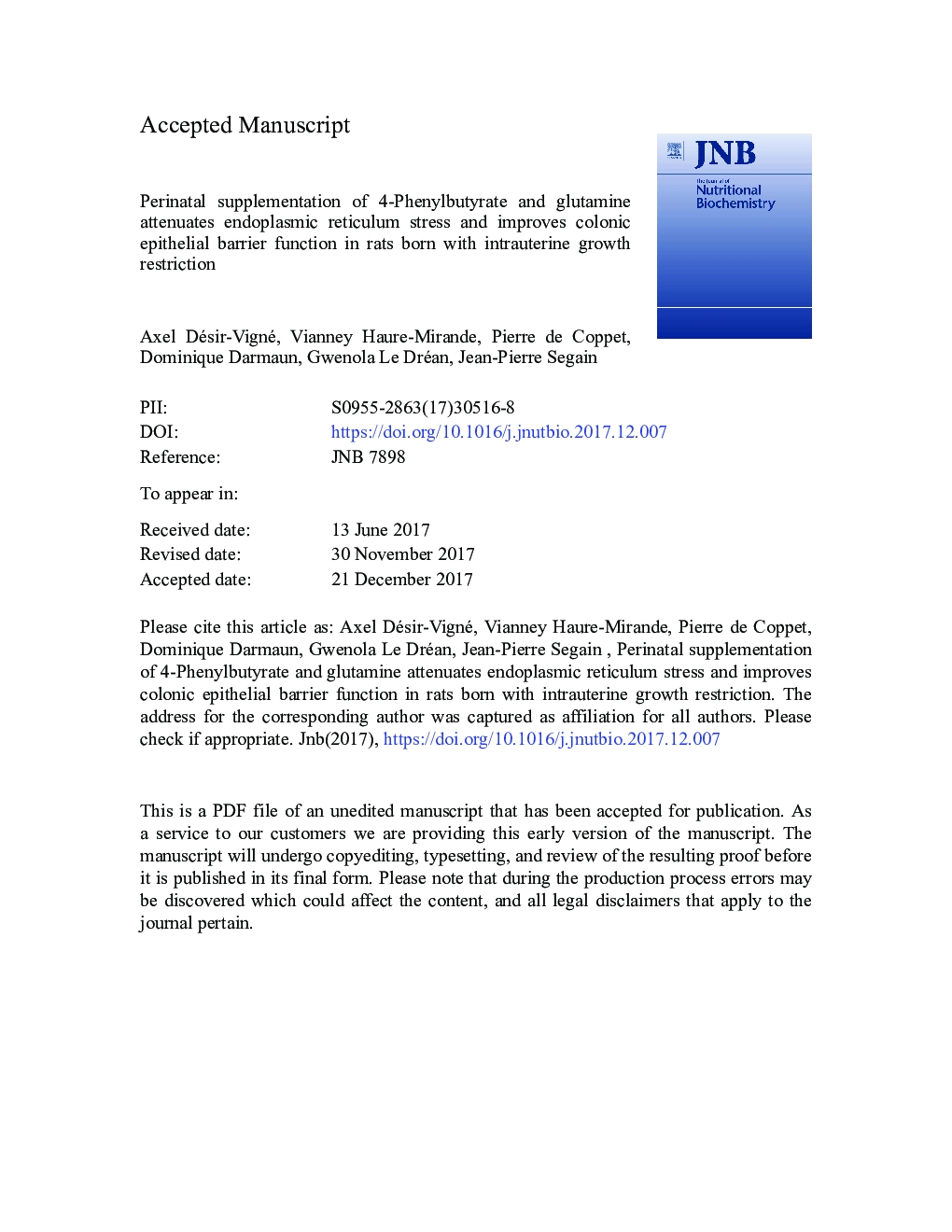| Article ID | Journal | Published Year | Pages | File Type |
|---|---|---|---|---|
| 8336383 | The Journal of Nutritional Biochemistry | 2018 | 29 Pages |
Abstract
Intrauterine growth restriction (IUGR) can affect the structure and function of the intestinal barrier and increase digestive disease risk in adulthood. Using the rat model of maternal dietary protein restriction (8% vs. 20%), we found that the colon of IUGR offspring displayed decreased mRNA expression of epithelial barrier proteins MUC2 and occludin during development. This was associated with increased mRNA expression of endoplasmic reticulum (ER) stress marker XBP1s and increased colonic permeability measured in Ussing chambers. We hypothesized that ER stress contributes to colonic barrier alterations and that perinatal supplementation of dams with ER stress modulators, phenylbutyrate and glutamine (PG) could prevent these defects in IUGR offspring. We first demonstrated that ER stress induction by tunicamycin or thapsigargin increased the permeability of rat colonic tissues mounted in Ussing chamber and that PG treatment prevented this effect. Therefore, we supplemented the diet of control and IUGR dams with PG during gestation and lactation. Real-time polymerase chain reaction and histological analysis of colons from 120-day-old offspring revealed that perinatal PG treatment partially prevented the increased expression of ER stress markers but reversed the reduction of crypt depth and goblet cell number in IUGR rats. In dextran sodium sulfate-induced injury and recovery experiments, the colon of IUGR rats without perinatal PG treatment showed higher XBP1s mRNA levels and histological scores of inflammation than IUGR rats with perinatal PG treatment. In conclusion, these data suggest that perinatal supplementation with PG could alleviate ER stress and prevent epithelial barrier dysfunction in IUGR offspring.
Related Topics
Life Sciences
Biochemistry, Genetics and Molecular Biology
Biochemistry
Authors
Axel Désir-Vigné, Vianney Haure-Mirande, Pierre de Coppet, Dominique Darmaun, Gwenola Le Dréan, Jean-Pierre Segain,
